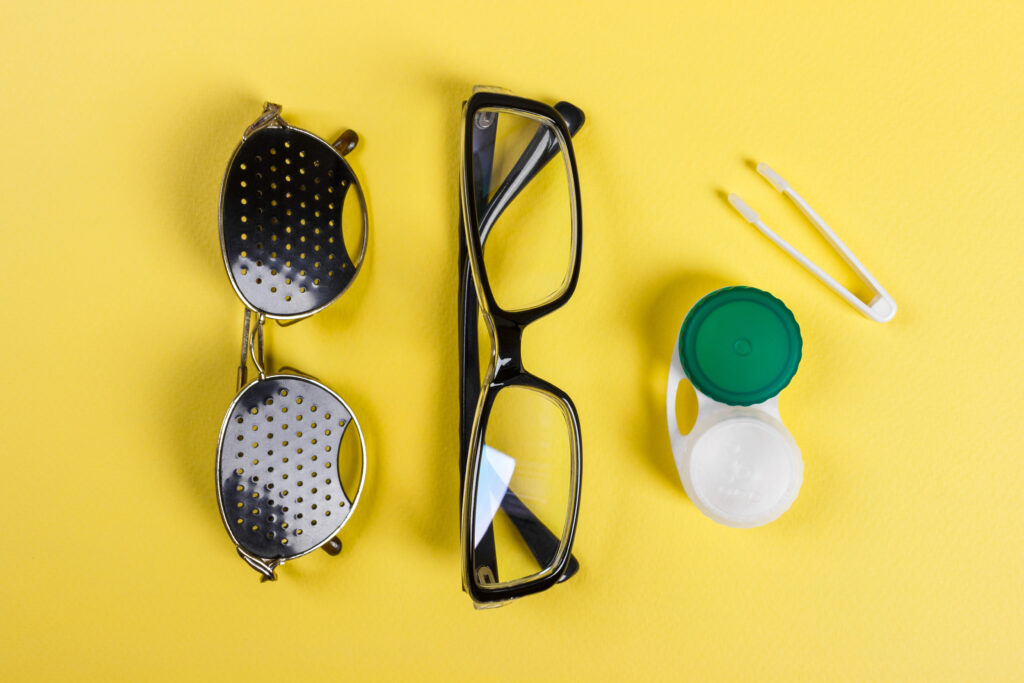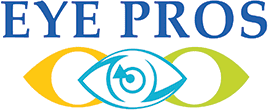On The Go? Eye Pros’ Travel Eye Care Tips

When you’re on the go, it’s easy to overlook the importance of eye care, but your eyes need attention—especially when traveling. Whether you’re taking a road trip or catching a flight, environmental changes and long journeys can affect your vision and overall eye health. From air travel with contact lenses to protecting your eyes from UV rays in new climates, keeping your eyes healthy should be a priority. At Eye Pros, we understand that travel can put extra strain on your eyes. That’s why we’ve compiled essential travel eye care tips to help you maintain clear, comfortable vision no matter where your journey takes you. Whether you’re concerned about flying after eye surgery or simply need advice on packing a contact lens travel kit, we’ve got you covered. Common Eye Issues Travelers Face Traveling can present several challenges for your eyes, from dry air on airplanes to increased exposure to UV rays in outdoor environments. Here are some of the most common eye issues travelers encounter and how to address them. Dry Eyes Long flights and extended travel can lead to dry eyes, especially due to the low humidity in airplane cabins. The dry air reduces tear production, causing discomfort and irritation. Whether you’re traveling with disposable contact lenses or wearing glasses, it’s important to stay hydrated and use lubricating eye drops to keep your eyes moisturized during flights. Exposure to UV Rays Traveling often means spending more time outdoors, which increases your exposure to harmful UV rays. Whether you’re hiking in a sunny location or skiing at high altitudes, UV protection is essential to prevent damage to your eyes. Be sure to pack sunglasses with 100% UV protection to safeguard your eyes from prolonged sun exposure. Eye Infections When traveling, you’re exposed to different environments, some of which may contain dust, pollen, or bacteria that can lead to eye infections. Poor hygiene, especially with contact lenses, can increase the risk of infections. Travelers should prioritize contact lens hygiene by packing a contact lens travel kit and ensuring they have access to clean water and hand sanitizer before handling their lenses. Essential Eye Care Tips for Travel Travel can be tough on your eyes, but with a few simple steps, you can keep them comfortable and healthy on the go. Here are some practical travel eye care tips to ensure your vision stays clear, whether you’re flying or spending time outdoors. Stay Hydrated Dehydration during travel, especially on long flights, can lead to dry eyes. Drink plenty of water to stay hydrated and keep your tear production normal. If you suffer from dryness, use lubricating eye drops to prevent irritation. Be sure to pack travel-sized drops in your carry-on. Use Sunglasses with UV Protection Whether you’re heading to a sunny beach or a snowy mountain, UV rays can damage your eyes. Always wear sunglasses that block 100% of UVA and UVB rays to protect your vision during outdoor adventures. This is particularly important if you’ve had recent eye surgery, as flying after eye surgery requires extra precautions for eye protection. Pack Extra Contact Lens and Solution If you’re a contact lens wearer, make sure to pack a contact lens travel kit with extra lenses, solution, and a travel contact lenses case. Consider traveling with disposable contact lenses, which are convenient and reduce the risk of infection. For longer flights, you may want to switch to glasses or ask your eye doctor whether it’s safe to wear your contacts in flight. Take Breaks from Digital Screens Long travel days often involve extended time on digital devices, which can strain your eyes. To reduce eye strain, follow the 20-20-20 rule: every 20 minutes, look at something 20 feet away for 20 seconds. This will help reduce the risk of digital eye strain and keep your eyes feeling fresh. Eye Care for Different Climates Different climates can affect your eyes in various ways, making it important to adapt your eye care routine based on your travel destination. Whether you’re heading to a dry desert or a humid beach, here’s how to protect your eyes in diverse environments: Dry, Cold Climates Cold climates with dry air can exacerbate dry eyes, particularly in places with low humidity. In these environments, use a humidifier in your hotel room to add moisture to the air and prevent eye irritation. Keep lubricating eye drops handy to hydrate your eyes throughout the day, especially if you wear contact lenses. If you plan to engage in outdoor activities, wearing sunglasses will also help protect your eyes from wind and cold air, which can cause further dryness. Hot, Humid Climates In hot and humid climates, your eyes may be more exposed to UV rays and irritants like dust or sand. Wearing sunglasses with UV protection is essential, as is keeping your eyes clean and free from debris. If you’re traveling to a beach or dusty area, consider wearing wraparound sunglasses for added protection against particles. For contact lens wearers, traveling with disposable contact lenses can be a good option to minimize the risk of infection in humid conditions. Dusty or Polluted Areas In areas with high pollution or dust, your eyes are more vulnerable to irritation and infection. If you’re visiting such a destination, use protective eyewear like wraparound sunglasses to shield your eyes from irritants. Keep a travel contact lenses case and a backup pair of glasses on hand to reduce the risk of infections from contact lenses. In these environments, good hygiene is key—always wash your hands before handling lenses, and avoid touching your eyes unnecessarily. Traveling with Contact Lens Traveling with contact lenses requires extra care to avoid discomfort and potential eye infections. Whether you’re flying or exploring new destinations, following these tips will ensure your eyes stay healthy while you’re on the go. Pack Smart Always pack a contact lens travel kit with essentials like a travel contact lenses case, solution, and extra contact lenses. Having a backup pair of glasses is also important in
